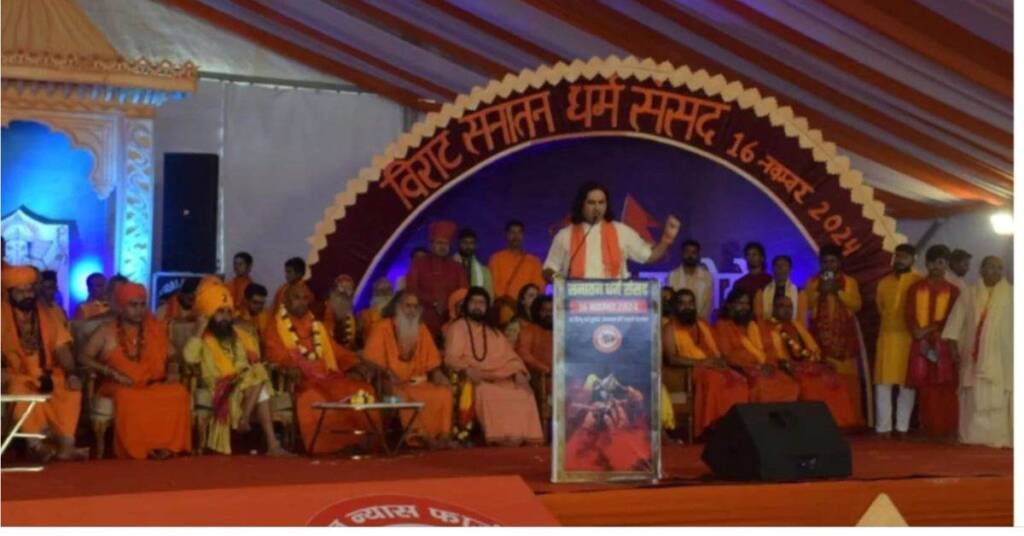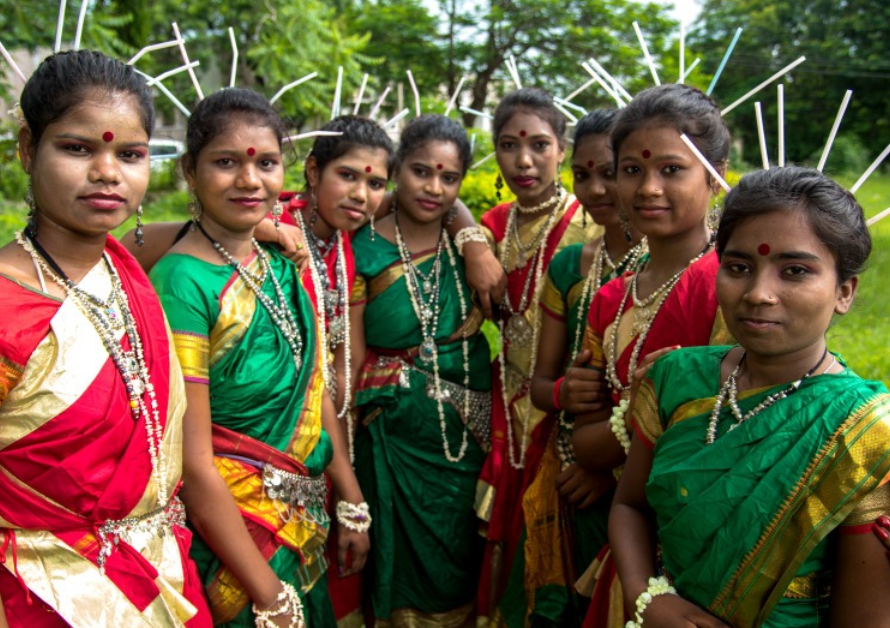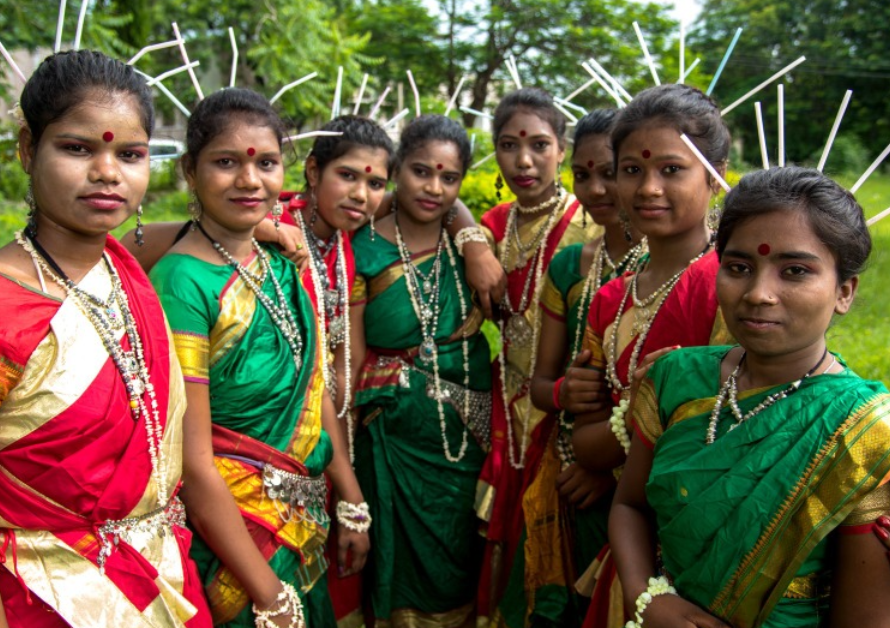Introduction:
The Dharma Sansad, organized by Shanti Seva Sansthan under the guidance of Pandit Devkinandan Thakur Ji, took place on November 16, 2024, in New Delhi. This significant gathering included hundreds of saints from across India, with prominent attendance by Shankaracharya Ji, and was joined by millions of Hindu devotees. The main objectives of this Dharma Sansad were to address the challenges facing the Hindu community, protect their rights, and unite the Hindu society through the establishment of a Sanatan Board. This board, modeled after the Waqf Board, aims to provide equal rights and facilities for Hindus and to eliminate any unjust discrimination.
Primary Objectives and Agenda:
The main agenda of this Dharma Sansad was as follows:
Establishment of the Sanatan Board:
The Sanatan Board will be set up along the lines of the Waqf Board, to allow independent management of Hindu religious sites, temples, and cultural institutions.
A demand was made for Hindu studies to have equal representation in education, similar to how Bible and Quran studies are taught in minority institutions.
There was a call for a Uniform Civil Code, so a uniform law can apply to all Indian citizens, upholding the secular spirit of the Constitution.
Ending Constitutional Discrimination and Injustice:
The constitutional amendments made by Congress governments in the early decades post-Independence were criticized for giving special facilities to minorities, which, in turn, marginalized the majority Hindu community.
Saints condemned Congress’s vote-bank politics, which, through appeasement policies, granted special rights to the Muslim community while infringing on Hindu rights.
The efforts of the current Modi government were appreciated, which is striving to restore Hindu rights, though it faces challenges due to a lack of sufficient support in Parliament.
Key Issues and Discussions at Dharma Sansad:
- Raising Hindu Awareness and Shifting Mindsets:
Saints emphasized the need to transform the mindset of Hindus, stating that:
For 75 years, the Hindu community has endured Muslim appeasement and discriminatory policies. The time has come to stand united against this injustice.
If we remain passive and divided, India could become an Islamic state in the future, where Sharia law will prevail. This would be detrimental to the very existence of Hindu culture and traditions.
- The Need for a Sanatan Board:
The Sanatan Board aims to protect Hindu religious, educational, and cultural rights.
The board will be established to manage Hindu religious sites and temples, promote Hinduism in education, and safeguard Hindu marriage and personal laws.
A demand was made for a Uniform Civil Code to ensure every citizen receives equal rights and that all are equal before the law. - Supporting the Modi Government and the Call for Hindu Unity:
The Dharma Sansad appealed to the Hindu community to fully support the Modi government so that ongoing reforms to protect Hindu interests can proceed smoothly.
Efforts like Ayodhya Ram Temple, NRC, and the push for a Uniform Civil Code were praised, and a call for future progress in these areas was emphasized.
Saints urged Hindus to be politically organized in their voting and to avoid dividing their votes. - Preparedness for Self-Defense and Security:
The Dharma Sansad expressed concern over the rise in terrorism, violence, and attacks on Hindus by Muslims and opposition parties.
Hindu organizations, such as RSS, VHP, Bajrang Dal, were urged to unite and prepare to ensure the security of the Hindu community.
Saints emphasized that if necessary, Hindus should be ready to take up arms in self-defense. - Economic Boycott and Countering Jihad:
The Dharma Sansad called for an economic boycott of Muslim-run businesses involved in various forms of jihad, including food jihad, medical jihad, mall jihad, as a measure to counter these activities.
This would ensure the safety of the Hindu community and help break the economic backbone of jihadi elements. - Cultural Preservation and Education Reform:
There was a demand for educational reform to preserve the rich cultural heritage of Hinduism and familiarize the younger generation with its importance.
A proposal was put forth to make the study of Vedas, Upanishads, Bhagavad Gita, and other Hindu scriptures mandatory in schools and colleges.
Future Strategy:
The Dharma Sansad decided to establish a volunteer task force across India, which will coordinate activities of the Sanatan Board at the local level. This task force will unite the Hindu community and help convey the board’s demands to the government. In addition, another Dharma Sansad will be organized next year, where detailed discussions will take place on the establishment and functioning of the Sanatan Board.
Conclusion:
The Dharma Sansad concluded with a call for the Hindu community to become aware, united, and actively take steps to protect their rights. Hindus should no longer tolerate injustice and must take solid steps for the protection of their religion, culture, and nation.
“Our struggle will end only when we achieve equal rights as per the Constitution and ensure the protection of Hindu Dharma.”







